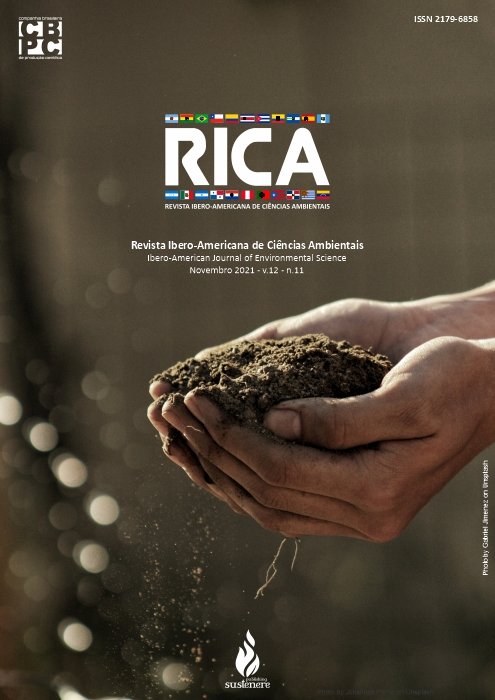Physical and chemical analysis of water in three pisciculture systems located on line 610, Jaru (RO)
DOI:
https://doi.org/10.6008/CBPC2179-6858.2021.011.0008Keywords:
Aquaculture, Water quality, Colossoma macropomumAbstract
For greater and better fish production, the monitoring of water quality in a fish farming system must be taken into account, thus ensuring good productivity and quality of fish. In this sense, observing the importance of fish farming for the state of Rondônia, this study aimed to carry out a physical-chemical analysis of three different fish farming systems located on line 610, rural area of the city of Jaru-RO, with three sampled points with a total of 56 tanks analyzed. The parameters analyzed were temperature, dissolved oxygen, electrical conductivity, pH, ammonia, total nitrate, total nitrite, total phosphorus, total dissolved solids, turbidity, total alkalinity and total hardness. The analyzes were carried out during the months of February and March 2020. The results were compared with those recommended by current legislation and norms of good practice in the production of fish in tropical waters, belonging to the species Colossoma macropomum. Through the results of the analyzes it is observed that at collection point 01, only 1/16 tanks presented all variables within the standards, with emphasis on the concentration of total phosphorus, in which 93.75% of the tanks in this system presented a value above of the ideal. At collection point 02, all tanks, 6/6, presented some of the variables above the established standards for good practices in fish farming, highlighting the concentration of ammonia in the system, where 83.33% of the tanks presented a value above the recommended value. At collection point 03, only 3/14 tanks had all variables within the standards. Thus, this work demonstrated that fish farmers should perform better monitoring and management of fish farming systems located on line 610 in Jaru/RO, in order to ensure good productivity and better quality of fish, and consequently greater financial return.
Downloads
Downloads
Published
Issue
Section
License
Copyright (c) 2021 Ibero-American Journal of Environmental Sciences

This work is licensed under a Creative Commons Attribution-NonCommercial-NoDerivatives 4.0 International License.
The CBPC - Companhia Brasileira de Produção Científica (Brazil CNPJ: 11.221.422/0001-03) the material rights of the published works. The rights relate to the publication of the work anywhere in the world, including rights to renewals, expansions and dissemination of the contribution, as well as other subsidiary rights. All electronically published works may subsequently be published in printed collections under the coordination of this company and / or its partners. The authors preserve the copyright, but are not allowed to publish the contribution in another medium, printed or digital, in Portuguese or in translation.









